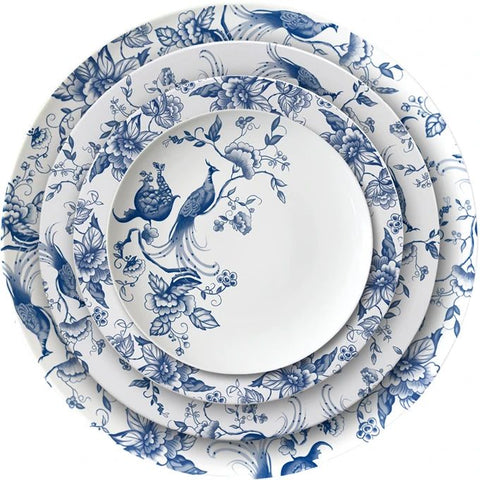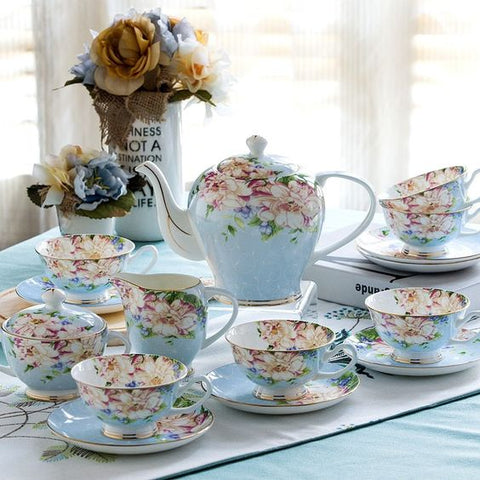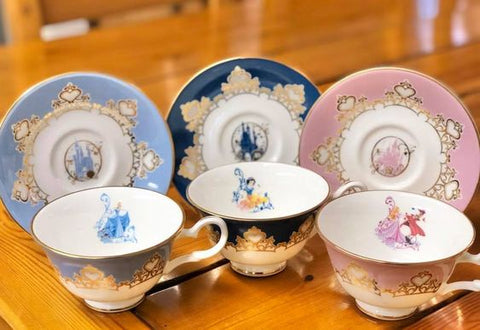When considering tableware or decorative items, many people wonder: does porcelain rust? This question is particularly important for those looking to invest in high-quality ceramics. In this blog, we will dive into the properties of porcelain, its resistance to rust, and how products from Jingdezhen Porcelain exemplify these qualities.
Understanding Porcelain
Porcelain is a type of ceramic made from kaolin clay, feldspar, and quartz, and is fired at extremely high temperatures. This process results in a dense, non-porous material that is both strong and beautiful. Unlike metals, porcelain does not rust because it is not made of iron or steel, which are susceptible to oxidation.
Why Porcelain Doesn’t Rust
-
Material Composition:
Porcelain is primarily composed of inorganic materials that do not contain iron. Rust occurs when iron oxidizes in the presence of moisture and oxygen. Since porcelain lacks these elements, it remains rust-free. -
High-Temperature Firing:
The high temperatures used in firing porcelain create a vitrified surface, making it non-porous. This means that it doesn’t absorb moisture or allow air to penetrate, further reducing the risk of rust-like reactions. -
Durability:
Porcelain is known for its strength and durability. It can withstand daily use without chipping or degrading, making it an excellent choice for both everyday items and fine china.
Common Misconceptions About Porcelain
While porcelain does not rust, there are some misconceptions that are worth addressing:
-
Stains and Discoloration:
Some people confuse stains on porcelain with rust. If left uncleaned, certain foods or beverages can leave marks on porcelain surfaces. However, these stains can be removed easily with proper cleaning methods. -
Chipping vs. Rusting:
Chipping can occur if porcelain is dropped or knocked against a hard surface. This is not rust but rather a physical break in the material.
Caring for Your Porcelain Items
To ensure the longevity of your porcelain products and maintain their beauty, follow these care tips:
-
Gentle Cleaning:
Use a soft cloth or sponge with mild soap to clean your porcelain. Avoid abrasive materials that can scratch the surface. -
Avoid Extreme Temperatures:
Rapid temperature changes can cause thermal shock, leading to cracks. Always allow hot porcelain to cool before washing with cold water. -
Storage:
Store porcelain items carefully, preferably in padded cabinets or display cases, to protect them from potential damage.
Exploring Products from Jingdezhen Porcelain
If you’re looking for high-quality porcelain that exemplifies durability and beauty, check out JDZPORCELAIN.COM. Here are some examples of their exquisite offerings:
-
Elegant Dinnerware Sets: Perfect for both casual dining and formal occasions, these sets are crafted to withstand daily use without compromising on elegance.
-
Decorative Vases: These pieces not only serve as beautiful decor but are also made from high-quality porcelain that resists staining and discoloration.
-
Unique Collectibles: Handcrafted items that reflect the rich tradition of Jingdezhen porcelain, showcasing both artistry and durability.
Conclusion
In summary, the answer to does porcelain rust? is a resounding no. Porcelain is a durable and beautiful material that offers excellent longevity without the risk of rust. By investing in quality porcelain products from Jingdezhen Porcelain, you can enjoy the elegance of fine ceramics without worrying about degradation over time.
FAQs
-
What causes rust in ceramics?
Ceramics do not rust; rust occurs in materials containing iron when exposed to moisture. -
Can porcelain get stained?
Yes, certain foods and beverages can stain porcelain, but these stains can typically be cleaned easily. -
How should I clean my porcelain items?
Use a soft cloth and mild soap, and avoid abrasive cleaning materials. -
Is porcelain durable for everyday use?
Yes, high-quality porcelain is designed for both everyday and special occasion use. -
What types of porcelain are available at JDZPORCELAIN.COM?
You can find a variety of elegant dinnerware, decorative items, and unique collectibles. -
How can I protect my porcelain from chipping?
Store porcelain items carefully and avoid exposing them to extreme temperature changes.



